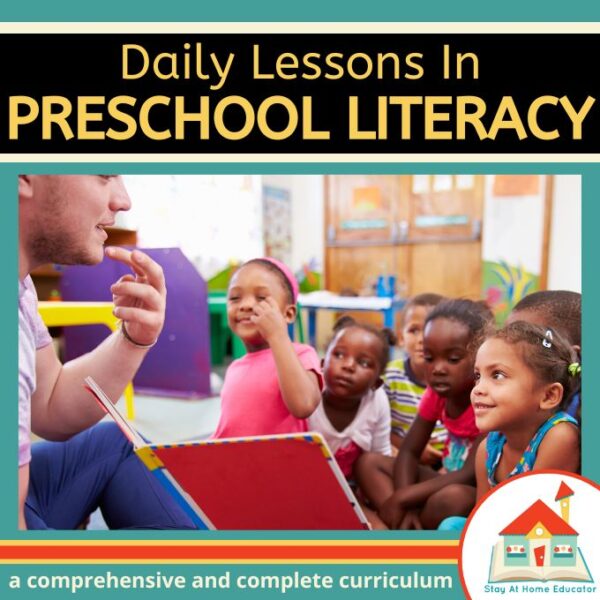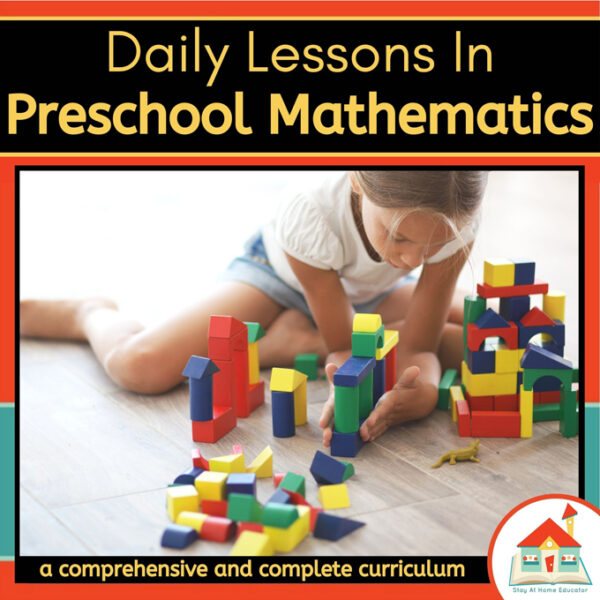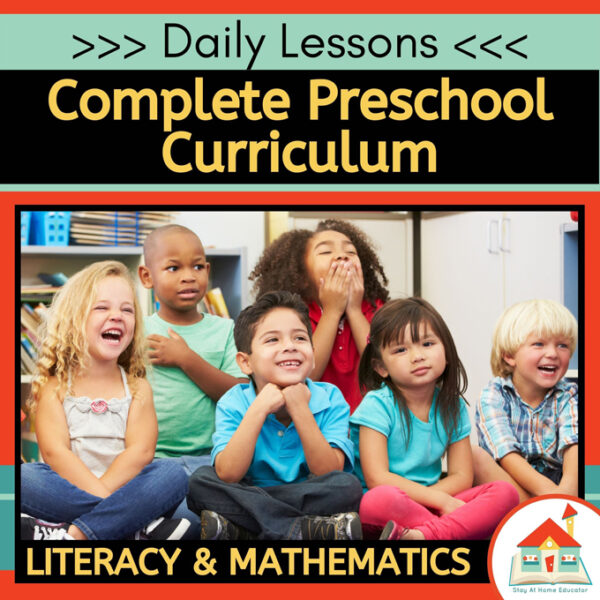Writing preschool lesson plans doesn’t have to feel overwhelming! It’s easy to get caught up in ALL the things to do because let’s face it, you are not JUST a preschool teacher, you are a play master, friend, builder, artist, referee, and a musician all in the same day.
This post is full of information on how to write lesson plans and how to make the most of your planning process!
How to Write Lesson Plans for Preschool
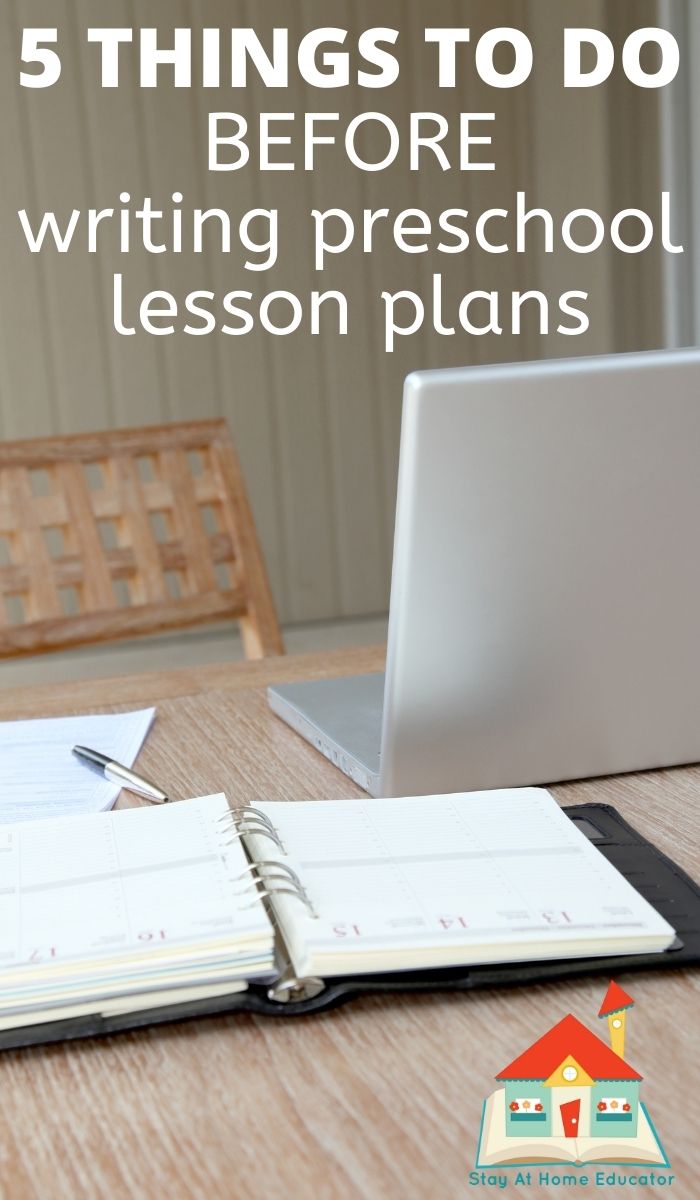
Why should we plan for preschool?
We know that best practices for early childhood include play, hands-on activities, and plenty of opportunities to problem solve, explore, and interact. And although, teachers are fantastic at incorporating amazing learning opportunities at a moment’s notice, planning helps us to organize our thoughts AND ourselves to guide students to their maximum potential.
Lesson planning in preschool also helps us focus on what I refer to as, “mini-skills”. These mini-skills are the small opportunities that we try to sprinkle in our lessons that are not the main focus, but rather areas that we know are vital and must be included to help our children leave preschool with plenty of exposure and practice.
Planning helps us consider what is most developmentally appropriate, decide whether we have the right materials for the task(s), and helps us make connections to other academic areas and previously learned skills. Not to mention, we are always looking for the most engaging and exciting activities that will get our preschoolers excited about learning!
Taking the time to plan for our preschool students is so important. As a preschool teacher or parent, I know your time is limited, so why reinvent the wheel? Check out these lesson plans already made up for you.
PRESCHOOL LITERACY LESSON PLANS
PRESCHOOL MATH LESSON PLANS
THEMATIC PRESCHOOL LESSON PLANS
FAQ About Teaching Preschool
Preschool is a child’s first exposure to schooling and includes a plethora of skills including developmental skills like social/emotional support, as well as, fine and gross motor practice. Early academics are also a focus (including but not limited to number & letter recognition, shapes, colors, and beginning math and literacy concepts). Preschool is a time to encourage children to explore and try new things with imaginative/dramatic play opportunities. Preschoolers should have opportunities to play, paint, draw, sing songs, run, and be creative because as the old saying goes, “Young children were not made to sit still.”
Lesson planning for a preschool classroom should always include purpose or focus. The lesson needs to include a skillset to be taught and includes ways for children to interact and participate. Make sure to keep activities simple and fairly quick to ensure that students will remain engaged and active in the lesson. Consider student interest and use that to guide your themes or lesson plans.
Preschool offers endless advantages to a young child’s development. Learning to be social and interact with peers allows children to gain confidence and develop social-emotional skills. Preschool offers structure and routine while still allowing for student choice and play-based learning.

Consider These Five Things When Writing Preschool Lesson Plans
The process of planning for learning can sometimes feel laborious, especially if you are starting each new set of plans from scratch. These five steps will ensure that you are planning for high-quality instruction, providing developmentally appropriate activities, and working with your student’s at their level while also making the whole process easier, more streamlined, and intentional.
1. Think About the Big Picture
It’s important to consider your goals and skills for the whole year before you dive into your weekly or monthly preschool lesson plans. Getting organized from the beginning will be a huge lifesaver later down the planning road.
A developmentally appropriate scope and sequence that was carefully developed is a valuable tool to help keep you and your students on track. A scope and sequence is a list of monthly goals and objectives that build upon one another to ensure you reach the big goals by the end of the school year.
Considering the big picture also helps you plan smarter, not harder. If you are able to come up with a list of materials, books, and resources that you know that you will be using, it makes life a lot easier when it comes time to actually teach! Plus, you can include things that might not normally pop into your head such as reading chapter books to your preschoolers, more time learning outside, or time spent considering your preschool behavior plan.
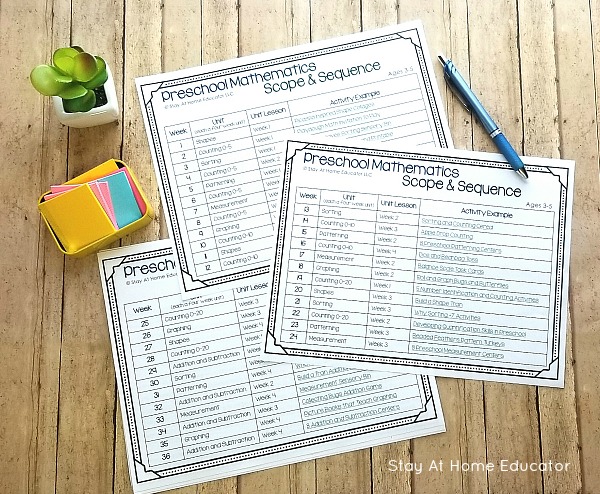
2. Be Knowledgeable of Your Students’ Current Skills
Planning with your students in mind is the ultimate goal. Consider their prior knowledge before you plan your lessons. If most of your students know their primary colors, there is no need to spend additional time teaching it since that time could be better spent learning how to mix colors, learn color words, or connect those colors to emotions and feelings, etc.
Knowing what skills they should be proficient in by the end of the school year is a crucial part of planning. To write useful lesson plans, you need to establish your students’ skill sets in the different areas of development, including oral language and reading readiness, number awareness and math readiness, gross and fine motor skills, and social and emotional development. Plan opportunities that hit multiple skills at once and observe how students are learning and growing – as this impacts your future planning.

3. Have a Flexible Schedule
Schedules are important for children…and adults! They help children feel prepared by anticipating order and routines. But schedules do not have to be set in stone. Often the best schedules for young children are those that allow enough flexibility for children to have a say. Some classrooms run on a tight schedule, while others run on a rhythm. And, of course, if something in the schedule isn’t working, then change it!
4. Allow for Student Choices
Allowing for student choice doesn’t have to be as daunting as it sounds. When children are able to make their choices, it builds their independence and critical thinking skills, along with the fact that they LOVE choosing for themselves. When lesson planning for preschoolers, it is important not to inadvertently eliminate student choice, which is one reason why free choice centers have become so popular. The more opportunity for children to decide for themselves, the better!

5. Keep it Developmentally Appropriate
Preschoolers are unique! They have shorter attention spans and a greater need to move and play than older children do, so not every teaching strategy is appropriate for preschoolers. That can leave you questioning how to write lesson plans for preschoolers.
Young children learn by doing, moving, singing, dancing, and playing so it’s important to consider the specific lesson when planning. Circle time provides opportunities for puppets, music, games, and stories. Small group time allows the teacher to be very intentional about what the students will learn and practice together. Ensuring that your lesson plans, activities, and classroom setup is developmentally appropriate should be a top priority.
Don’t forget to include ideas and ways for children to continue the learning at home!
These Lesson Planning Tips will Save Your Bacon!
The secret to having a great day teaching preschoolers is being organized and prepared. If you have an idea for what your lesson plans are going to be before the morning’s even started, then it’ll make those “Oh crap” moments much less frequent! Keep everyone happy by implementing these five tips before you start your preschool lesson planning. It’ll make your lesson plans even better, I guarantee it!
Get Done For You Preschool Lesson Plans
You can get a year of teaching already planned out for you, taking away all the guess work. Having solid lesson plans will keep you on track, giving you a road map to all the right skills.
My preschool curriculum lays out all the right key concepts in the right order, giving opportunities for students to learn deeply, all while you stay on track.
These daily lessons take the guesswork out of teaching preschool literacy. When you get these year-long lesson plans with our systematic sequence of skill progression, every literacy lesson you teach, builds upon what you’ve previously taught, so students feel successful and confident each day they’re with you.

I’m Sarah, an educator turned stay-at-home-mama of five! I’m the owner and creator of Stay At Home Educator, a website about intentional teaching and purposeful learning in the early childhood years. I’ve taught a range of levels, from preschool to college and a little bit of everything in between. Right now my focus is teaching my children and running a preschool from my home. Credentials include: Bachelors in Art, Masters in Curriculum and Instruction.
